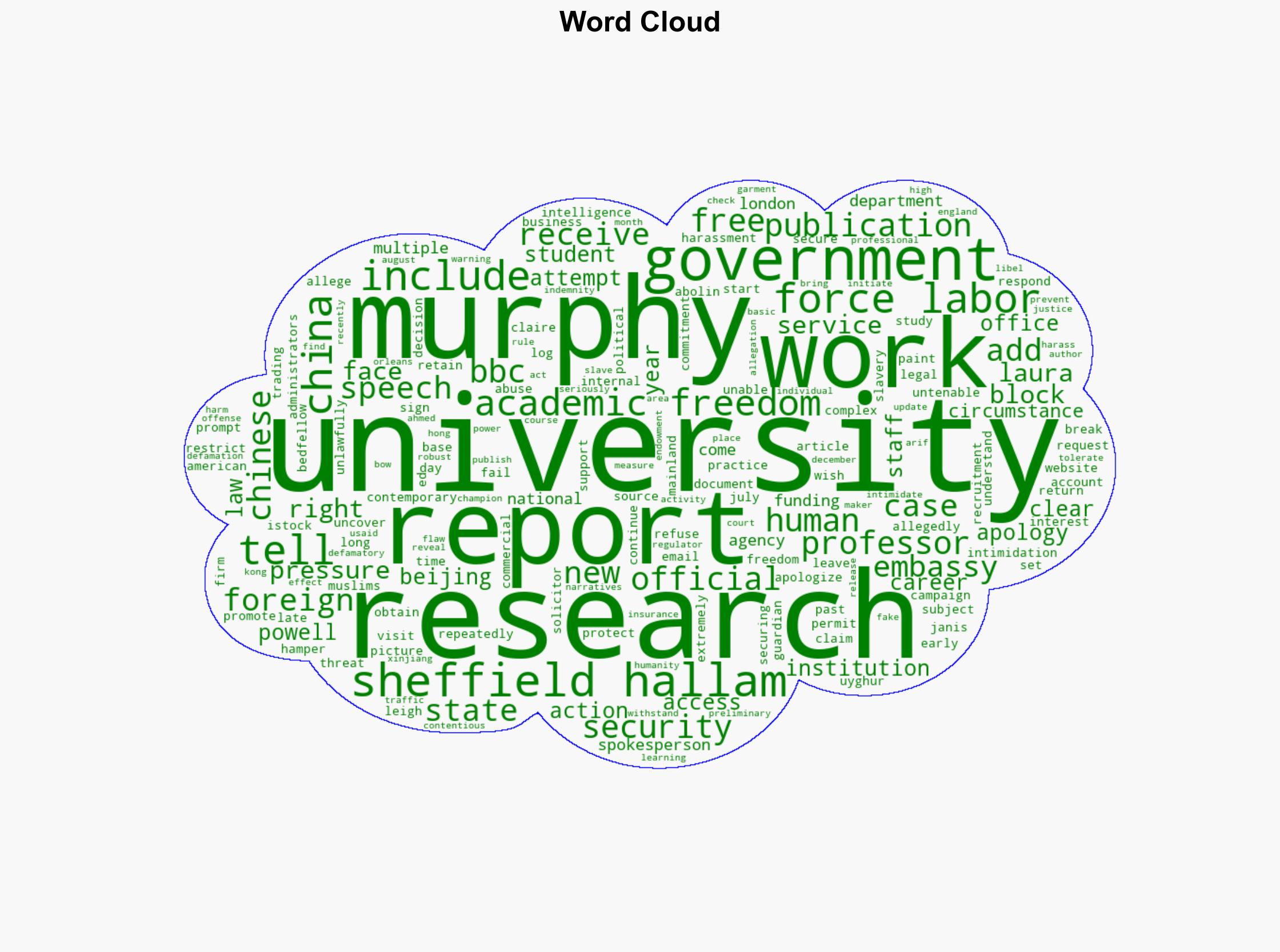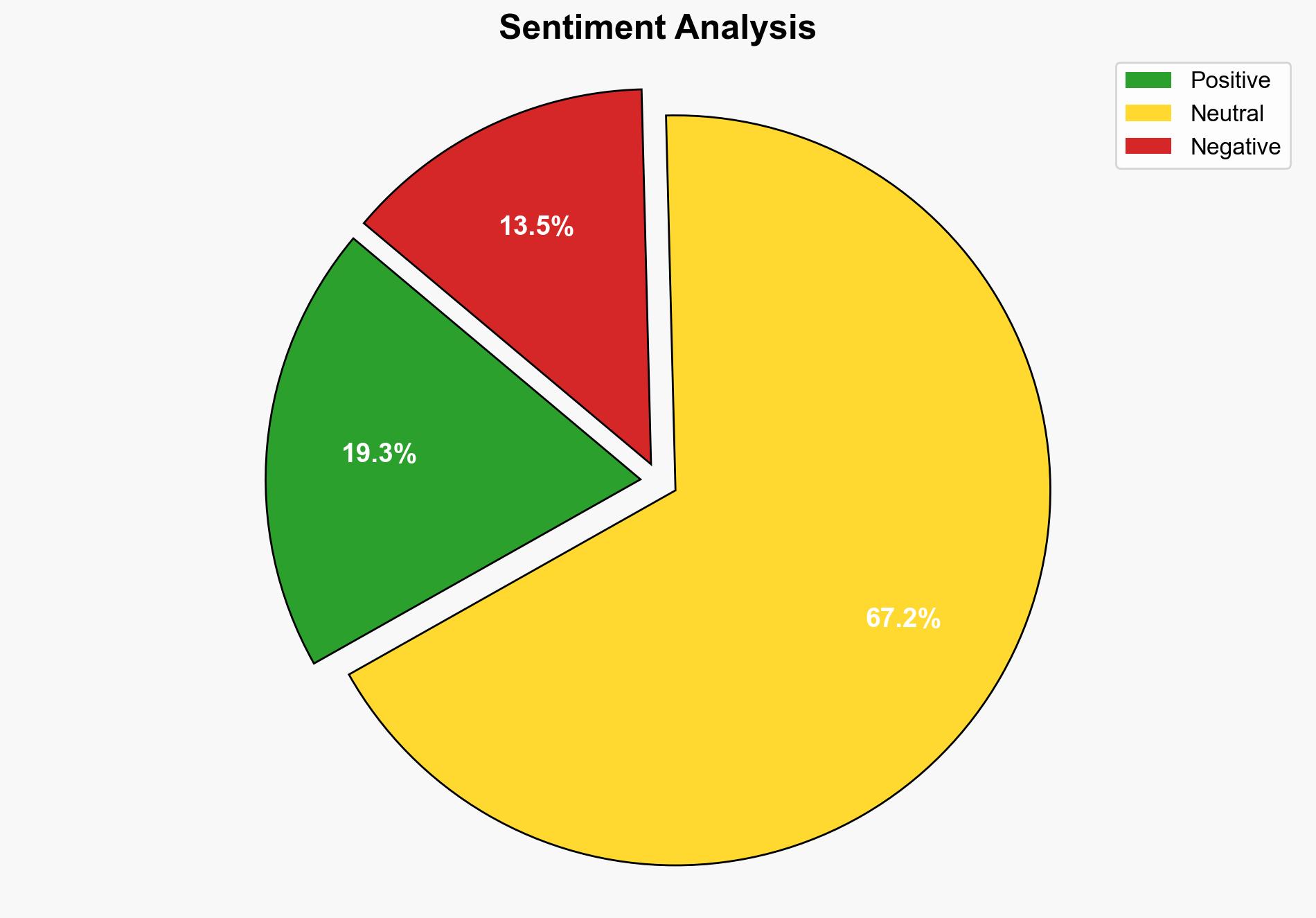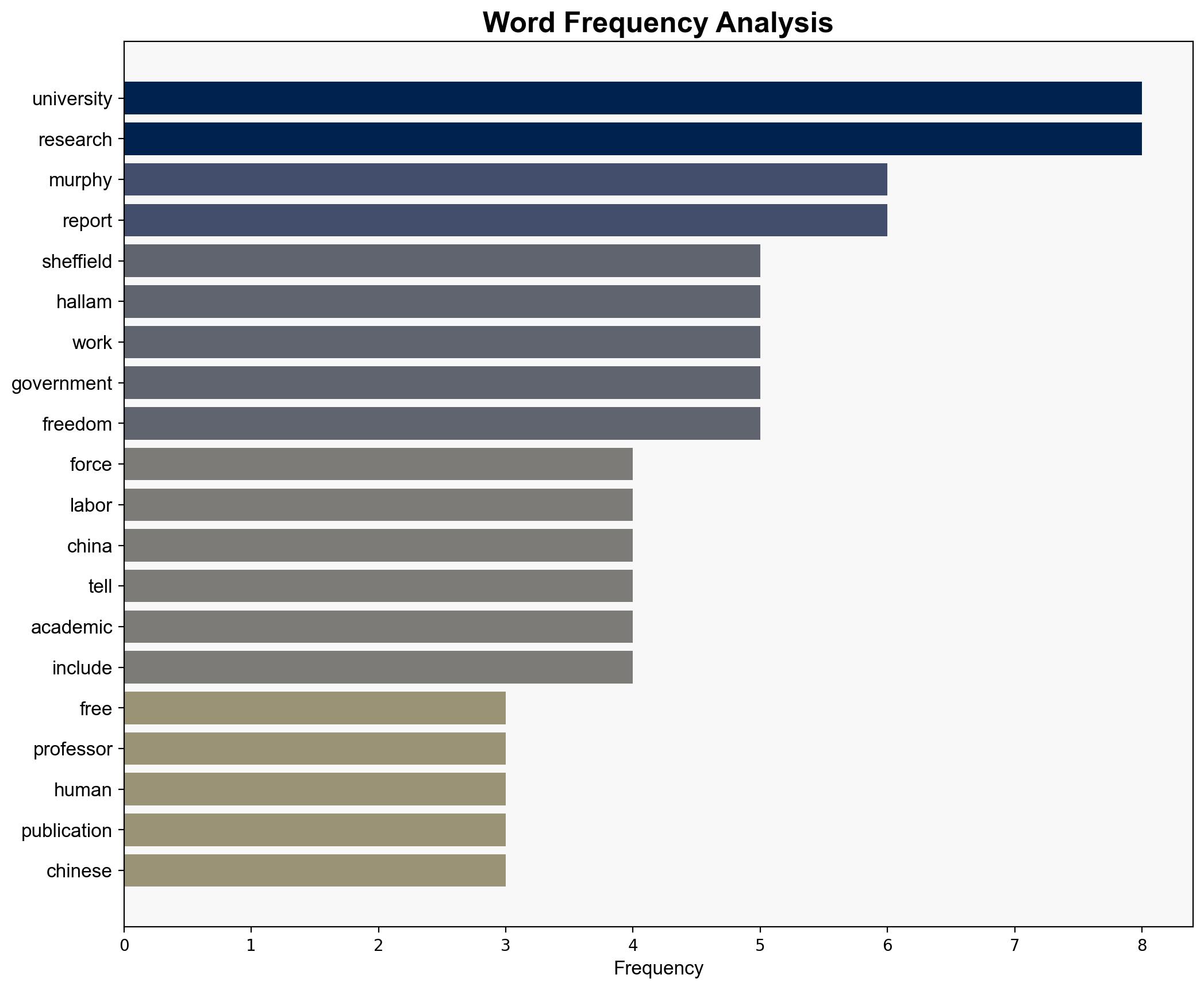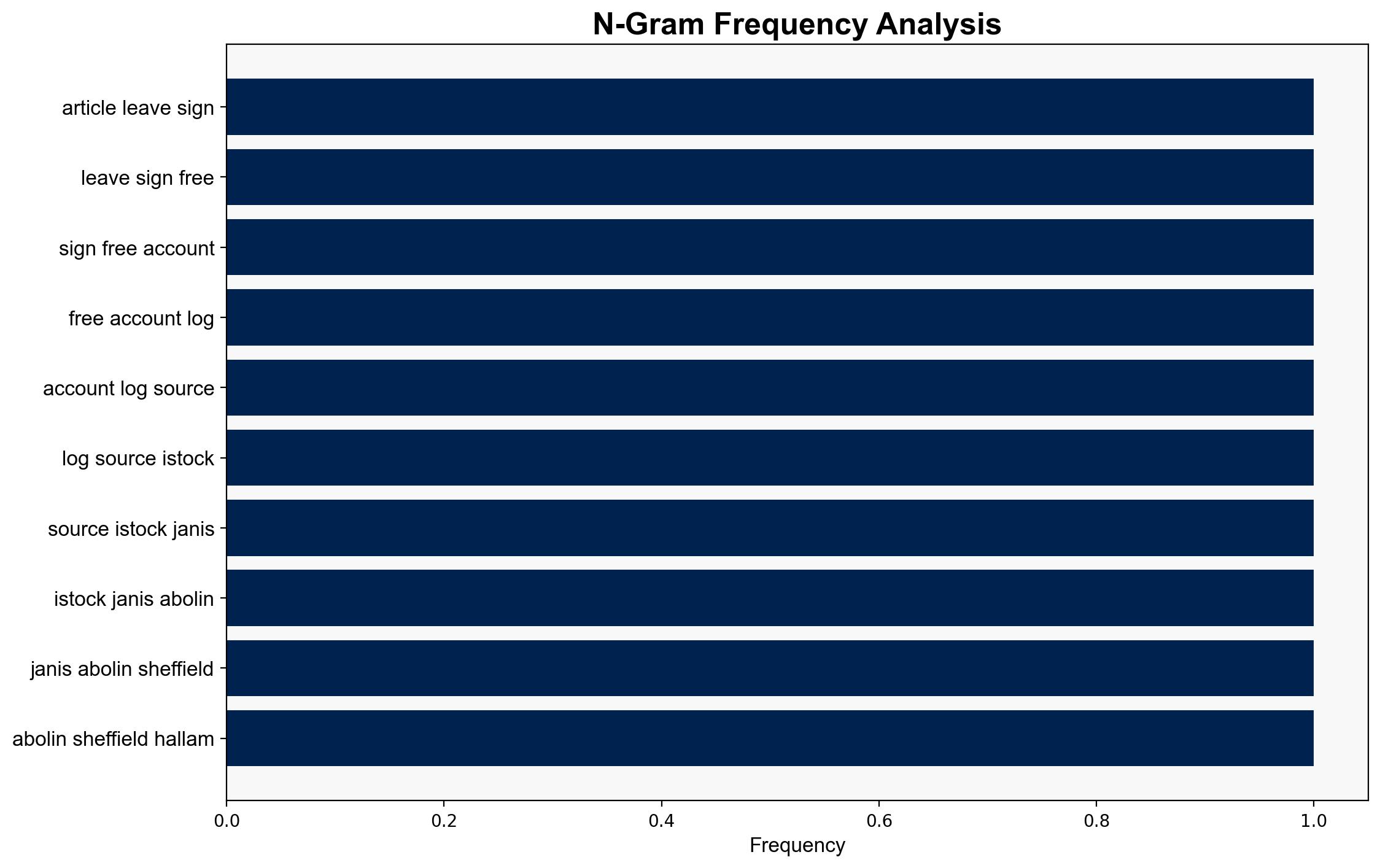Sheffield Hallam Apologizes to American Scholar Over Publication Ban – Inside Higher Ed
Published on: 2025-11-07
Intelligence Report: Sheffield Hallam Apologizes to American Scholar Over Publication Ban – Inside Higher Ed
1. BLUF (Bottom Line Up Front)
The most supported hypothesis is that Sheffield Hallam University restricted Laura Murphy’s research publication due to political pressure from Chinese authorities, prioritizing commercial interests over academic freedom. Confidence level: Moderate. Recommended action: Strengthen policies protecting academic freedom and establish clear guidelines for handling foreign influence in academic institutions.
2. Competing Hypotheses
1. **Hypothesis A**: Sheffield Hallam University restricted Laura Murphy’s research due to political pressure from Chinese authorities, prioritizing commercial interests over academic freedom.
2. **Hypothesis B**: The restriction was primarily due to internal administrative decisions based on legal and insurance concerns, with minimal influence from external political pressure.
Structured Analysis Using ACH 2.0
– **Evidence Supporting Hypothesis A**: Reports of visits from intelligence officials, blocking of the university’s website in China, and internal emails suggesting attempts to retain business with China.
– **Evidence Supporting Hypothesis B**: University spokesperson cited professional indemnity insurance issues and ongoing defamation cases as reasons for the restriction.
3. Key Assumptions and Red Flags
– **Assumptions**: Hypothesis A assumes significant influence from Chinese authorities on university decisions. Hypothesis B assumes internal administrative decisions were independent of external pressures.
– **Red Flags**: Lack of transparency in the university’s decision-making process and potential bias in public statements. The timing of the apology coinciding with new free speech laws raises questions about genuine intent.
– **Missing Data**: Detailed internal communications and decision-making processes within the university remain undisclosed.
4. Implications and Strategic Risks
– **Geopolitical Risks**: Increased scrutiny on academic institutions’ relationships with foreign governments, particularly China, could lead to broader regulatory changes.
– **Economic Risks**: Potential loss of international partnerships and student recruitment from China if similar incidents occur.
– **Psychological Risks**: Erosion of trust in academic institutions’ commitment to academic freedom.
5. Recommendations and Outlook
- Implement robust policies to safeguard academic freedom and transparency in decision-making processes.
- Conduct an independent review of the incident to identify gaps and prevent future occurrences.
- Best Case: Strengthened academic freedom policies enhance institutional reputation and attract diverse international collaborations.
- Worst Case: Continued foreign influence leads to further restrictions, damaging academic integrity and international standing.
- Most Likely: Incremental policy changes improve transparency and mitigate foreign influence risks.
6. Key Individuals and Entities
– Laura Murphy
– Claire Powell
– Arif Ahmed
– Sheffield Hallam University
– Chinese Embassy in London
7. Thematic Tags
national security threats, academic freedom, foreign influence, geopolitical dynamics





